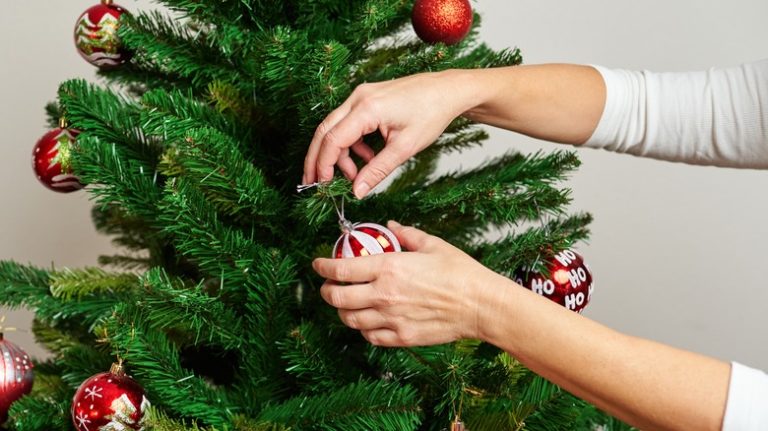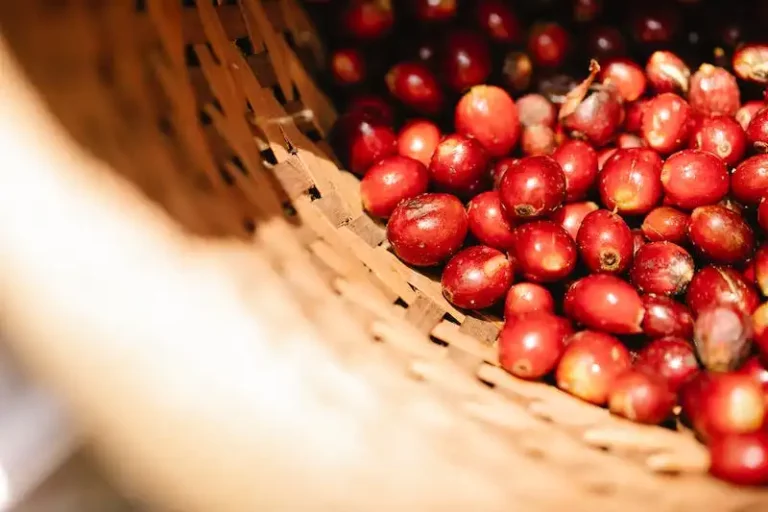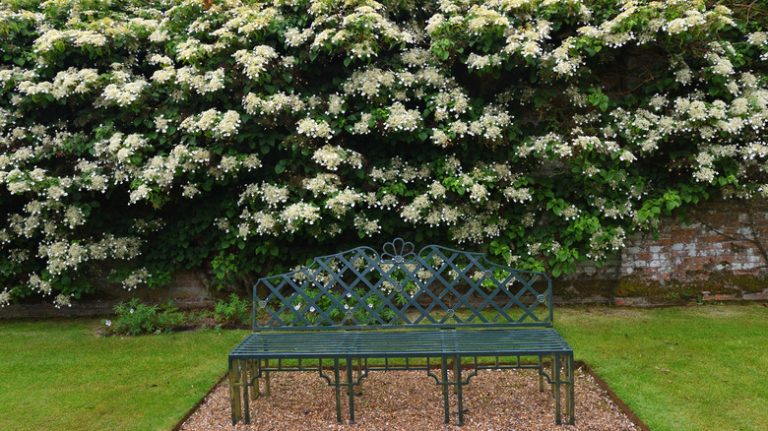Garden Trees, Shrubs & Vines
Brooke Younger
Is there anything lovelier than a full bushel of hydrangea flowers on a warm spring day? Whether they’re pink, white, or blue, these blooms are a special sight to behold, and it’s surprisingly easy to grow and take care of hydrangeas. Believe it or not, pink- and blue-flowering hydrangeas actually come from the same species of plant, Hydrangea macrophylla, or French hydrangeas. What determines the color of the blooms isn’t just the plant’s genetics, but also the pH level of its soil. By altering the soil pH with vinegar, you can actually turn your pink-flowering hydrangeas blue! For this trick, simply dilute your vinegar in water before pouring it around the base of your hydrangeas, and within just a few weeks you could have fresh and bountiful blue blooms.
Painting the roses red may be a tale from a children’s book, but painting hydrangeas blue, pink, or purple is no work of fiction. Learn more about how to use vinegar to turn your hydrangeas blue, the science behind this magical hack, and other methods you can use to help hydrangeas achieve the perfect hue.
Using vinegar for blue hydrangeas
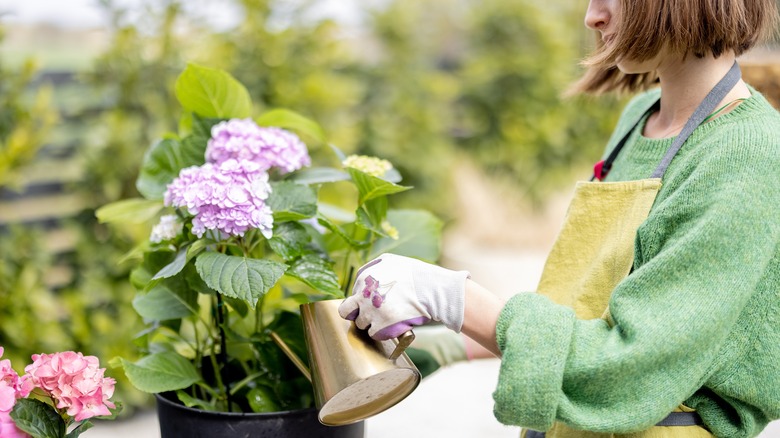
RossHelen/Shutterstock
Before doing anything to your plants, you may want to measure the pH of your soil. This is important if you don’t already know the type of hydrangea you have. If the soil is already acidic, you may have a strain that will never turn blue. As previously touched on, blue flowers indicate that your soil is highly acidic, purple or mixed flowers mean that it is only slightly acidic, and pink flowers mean that it is close to neutral. To start “blueing,” most hydrangeas need a pH level of 5.5 or lower.
To make your soil more acidic, dilute 1 cup of apple cider vinegar into about 1 gallon of water. If you’re fresh out of apple cider vinegar, you can also use white vinegar, but be aware that white vinegar tends to be much stronger. Apple cider vinegar ranges between 5% and 6% acidity, while white vinegar can sit anywhere between 5% and 10%. To avoid damaging the roots of your hydrangea, always dilute vinegar. Once you’ve established your vinegar solution, pour it around the base of your hydrangea, thoroughly soaking the soil while avoiding the stalk, stems, and leaves. Repeat these steps every two weeks, and within a few months, you should notice the blooms start to blue! Once you’ve reached your desired shade of blue, slowly phase out the vinegar solution.
Creating a rainbow in your garden
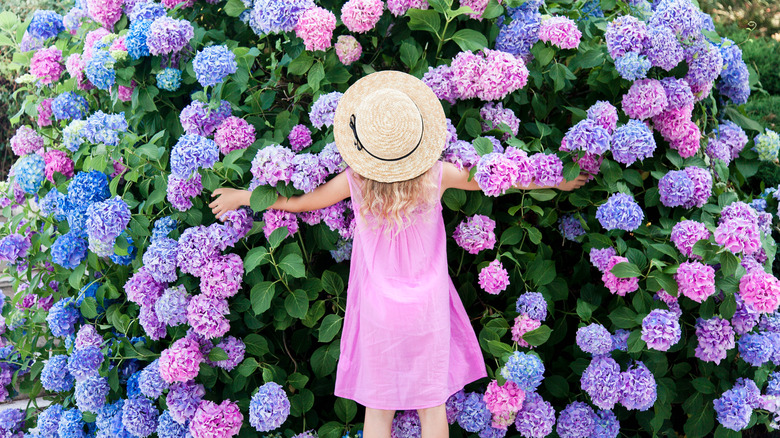
Marina Andrejchenko/Shutterstock
Before dousing your plants with too much vinegar, be sure you have the right kind of hydrangeas. Some selections like Ami Pasquier will never turn blue, but fade to purple in extremely acidic soil. White hydrangea varieties, meanwhile, will never turn pink or blue, no matter how you manipulate their soil. The best hydrangeas for color-changing blooms include Ayesha, Endless Summer, Purple Tiers, and Nikko Blue. If you’re nervous about pouring vinegar into your plants, there are other ways to obtain blue hydrangeas. Soil additives, tablets, coffee grounds, compost, and acidifying fertilizer can also work wonders, but the vinegar trick is one of the least expensive and time-consuming methods. For potted hydrangeas, simply opt for an acidic potting soil or ericaceous compost mixture.
You may be wondering, “If I can turn my hydrangeas blue, can I make them go pink?” The answer is yes! However, if you live in an area with highly acidic soil, this may be difficult. For blushing pink flowers, the soil needs to be slightly alkaline, so try adding lime, wood ash, ground eggshells, or baking soda. The best time to use this vinegar hack or any other soil-modifying solution is in early spring before the hydrangeas start to bloom. If you don’t see quick changes, don’t despair. Sometimes it can take up to a year for the colors to transition.

